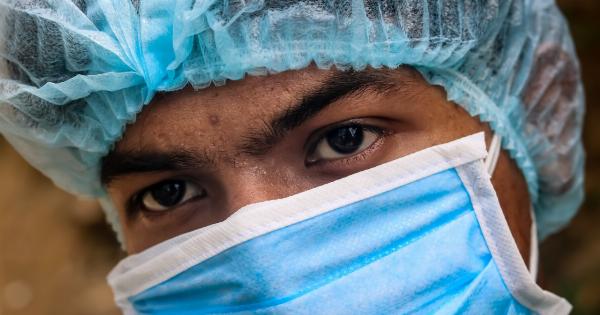When it comes to our well-being, many factors come into play, including our lifestyle choices, genetics, and the environments we expose ourselves to on a daily basis.
While some jobs can offer incredible satisfaction and fulfilling career paths, others could potentially harm our health in various ways. In this article, we will delve into the top 10 jobs that can negatively impact your health and well-being.
1. High-Stress Jobs
Chronic stress can have numerous detrimental effects on our mental and physical health.
Occupations that require constant high-stress decision-making, such as emergency medical services, law enforcement, and air traffic control, can significantly increase the risk of cardiovascular problems, anxiety disorders, and burnout.
2. Physically Demanding Jobs
Jobs that involve excessive physical exertion and demanding physical tasks can take a toll on the body over time.
Construction workers, firefighters, and professional athletes face a higher risk of musculoskeletal injuries, including sprains, strains, and fractures. These physically demanding jobs may also lead to chronic back and joint pain, which can reduce both work performance and overall quality of life.
3. Sedentary Desk Jobs
While sitting behind a desk all day may appear less physically demanding, the sedentary nature of many office jobs can contribute to a variety of health issues.
Prolonged sitting has been linked to obesity, heart disease, diabetes, and musculoskeletal problems. Without regular movement and exercise, those working in desk jobs may experience weight gain, poor posture, increased risk of blood clots, and back pain.
4. Healthcare Industry
Although ironic, working in the healthcare industry itself can sometimes negatively impact an individual’s health. Healthcare workers, including nurses and doctors, are often exposed to a wide range of infectious diseases in their line of work.
Additionally, long work hours and demanding schedules can lead to high levels of stress and burnout.
5. Manufacturing and Mining Jobs
Manufacturing and mining industries involve working with heavy machinery, hazardous materials, and substantial noise exposure.
Employees in these industries face a higher risk of industrial accidents, respiratory problems, hearing loss, and chronic illnesses caused by exposure to toxins like asbestos and coal dust.
6. Transportation Industry
From long-haul truck drivers to airline pilots, the transportation industry poses its share of health risks. Irregular schedules, long hours, and sleep deprivation can lead to fatigue, impaired cognitive function, and an increased risk of accidents.
Furthermore, constant exposure to vehicle vibrations and noise can lead to musculoskeletal disorders and hearing problems.
7. Emergency Services
Working in emergency services, such as paramedics, firefighters, and police officers, often demands quick response times and exposure to hazardous situations.
These professions can lead to post-traumatic stress disorder (PTSD), physical injuries, respiratory issues from smoke inhalation, and increased risk of cardiovascular diseases.
8. Agricultural and Farming Jobs
Agricultural and farming jobs involve exposure to various hazards like heavy machinery, pesticide exposure, long hours, and extreme weather conditions.
Famers face a higher risk of injuries from machinery accidents, skin disorders from pesticide use, respiratory problems from dust and mold exposure, and mental health issues stemming from isolation and financial pressures.
9. Hospitality Industry
The hospitality industry, which includes jobs such as hotel and restaurant staff, often involves long hours, irregular schedules, and high-pressure customer service.
These factors can lead to chronic fatigue, sleep disorders, increased risk of musculoskeletal injuries, and mental health issues from stress and job insecurity.
10. Night Shift Work
Working during the night disrupts the body’s natural circadian rhythm and can have a significant impact on an individual’s health.
Night shift workers face an increased risk of sleep disorders, gastrointestinal problems, mood disorders, and an elevated risk of accidents due to fatigue.
It’s important to note that while these jobs can pose potential health risks, not all individuals in these professions will experience adverse effects.
Factors such as workplace safety measures, personal lifestyle choices, and access to healthcare services can greatly influence one’s susceptibility to job-related health issues. Prioritizing self-care, adopting healthy habits, and seeking appropriate medical attention are crucial for maintaining well-being, regardless of the industry one is employed in.































